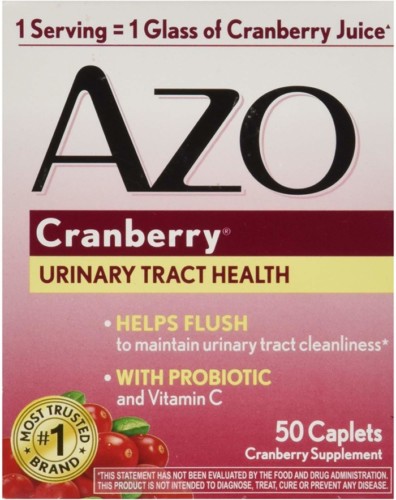Folks sometimes call the office looking for something they can do for their dog til it can get seen, or over the weekend, or just IN CONJUNCTION with a standard treatment.
And they ask about AZO, AZO Standard. Which is FINE to ask about except it turns out, the compound in AZO STANDARD is toxic to dogs.
Azo Cranberry, on the other hand, can be soothing, and it makes it harder for bacteria and inflammation to occupy the bladder and urethra.
Currently, Azo Cranberry isn’t made with Xylitol (it’s been years since manufacturers used Xylitol in anything that was possibly going to be used for dogs and cats. They’ve gone to sorbitol for the most part but MAKE NO ASSUMPTIONS and look. Xylitol can be toxic to dogs.
These are Azo Cranberry gummie chews and perhaps they'd be better taken by pets? The tablets may be better suited to embedding in peanut butter, cheese or your favorite form of pill disguise. | |
This is the tablet version. You can use "the adult dose" per 50 pounds of dog. That means if the 12 to adult dose is 2 tabs twice a day, go with that. If you're treating a little dog, consider quarters to halves. Still, the margin of safety on 'pure cranberry' is high. | |
I would add, that if some dog-breeder message board is running off telling people to use "just any" Azo, or they're recommending another Azo, (for example the one with the extra chemistry in it) AND you try it, AND it works and doesn't wreck your dog's kidneys or mentation, please let me know. That is COMMONLY a way I learn new things, is treating things the breeder message boards cause, SOMETIMES for better, SOMETIMES for worse. | To wit: |





